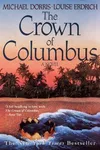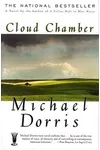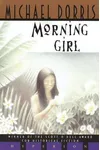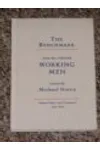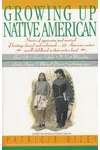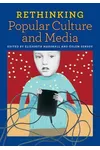Picture an American storyteller who wove Native American life into unforgettable tales—meet Michael Dorris! Born in 1945, this novelist, anthropologist, and advocate captured hearts with his poignant novel A Yellow Raft in Blue Water and the eye-opening memoir The Broken Cord. His stories blend personal struggle with cultural depth, making him a unique voice in literature.
Dorris’s work didn’t just entertain—it changed lives. His writing sparked conversations about identity, family, and the challenges faced by Native American communities, all with a compassionate, accessible style. Ready to dive into his world? Let’s explore the life and legacy of this remarkable author.
The Making of Michael Dorris
Born on January 30, 1945, in Louisville, Kentucky, Michael Dorris grew up in a household shaped by strong women—his mother, aunts, and grandmother—after his father’s death before his birth. With claimed Modoc heritage on his father’s side, Dorris spent summers on reservations in Montana and Washington, experiences that fueled his lifelong connection to Native American culture. He earned a BA from Georgetown University in 1967 and a Master’s in anthropology from Yale in 1971, blending academic rigor with a passion for storytelling.
His career took off at Dartmouth College, where he founded the Native American Studies program in 1972, becoming its first chair. As one of the first single men in the U.S. to adopt a child, Dorris welcomed three Native American children into his life, a decision that profoundly shaped his writing and advocacy. His personal and professional worlds collided, setting the stage for his literary breakthroughs.
Michael Dorris’s Unforgettable Stories
Dorris’s writing is a tapestry of empathy, identity, and cultural insight. His debut novel, A Yellow Raft in Blue Water (1987), is a masterpiece of intergenerational storytelling. It follows three Native American women—Rayona, Christine, and Ida—whose voices intertwine to reveal family secrets, resilience, and love. Critics praised its vivid characters and emotional depth, cementing Dorris’s reputation as a literary star.
His memoir, The Broken Cord (1989), is equally powerful. Drawing from his experience raising his adopted son with fetal alcohol syndrome (FAS), Dorris exposed the devastating effects of prenatal alcohol exposure. The book won the 1989 National Book Critics Circle Award and inspired Congress to pass legislation warning about drinking during pregnancy. Its blend of personal narrative and social advocacy made it a landmark work.
Dorris also co-authored works with his wife, Louise Erdrich, including The Crown of Columbus (1991), a novel blending romance and historical mystery. His children’s books, like Sees Behind Trees, brought Native American perspectives to young readers with sensitivity and charm. Dorris’s style—elegant yet approachable—made complex themes accessible, inviting readers to see the world through Native American eyes.
Why Michael Dorris Matters
Michael Dorris’s impact transcends his books. His advocacy for Native American issues and FAS awareness reshaped public policy and cultural narratives. By founding Dartmouth’s Native American Studies program, he elevated Indigenous voices in academia. His stories challenged stereotypes, offering nuanced portrayals of Native American life that resonated with readers worldwide.
Despite personal struggles and a tragic death in 1997, Dorris’s legacy endures. His ability to weave personal pain into universal stories continues to inspire writers and activists. For anyone seeking literature that bridges cultures and sparks change, Dorris’s work is a treasure trove waiting to be explored.
About Michael Dorris
- Born: January 30, 1945, in Louisville, Kentucky
- Key Works: A Yellow Raft in Blue Water, The Broken Cord, The Crown of Columbus
- Awards: 1989 National Book Critics Circle Award for The Broken Cord
- Founded: Native American Studies program at Dartmouth College
Snag A Yellow Raft in Blue Water or The Broken Cord and dive into Michael Dorris’s heartfelt, culture-rich storytelling!

